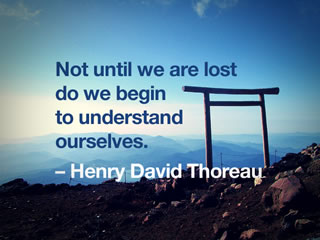Try Self-Tracking for a Week
If you’re new to self-tracking, you’re probably asking the following things: why should you do it and how might it benefit you? You can take the words of the Ancient Greeks regarding self-knowledge: 1) The imperative statement “Know thyself.” is carved on the facade of the Temple of Apollo at Delphi; 2) Socrates said “The unexamined life is not worth living.” and 3) Aristotle said “Knowing yourself is the beginning of all wisdom.” If you remain unconvinced, I urge you to try self-tracking for a week. In this post, I will describe activities you can try and some inspirations to get you started.

There are many problems preventing people to self-track. Three major problems are 1) self-tracking takes too much time; 2) self-tracking costs too much money; and 3) self-tracking requires too much commitment for a small benefit. The following are some solutions to these problems.
You probably think that you have to record several things about yourself several times every day to get the benefit of self-tracking. Instead of doing all this work, take the time at the beginning or end of each day to write a few things about yourself. For example, suppose you want to improve your sleeping pattern; you want to sleep earlier, so you get more sleep. First thing to do is place a piece of paper next to your bed. Write the dates for the next seven days on each line. Each day, write down when you go to bed, when you wake up, and the total sleep time. At the end of the week, see if there is a correlation between your day activities and your sleep.
You probably think that you have to buy expensive equipment to record your activities. However, there are many free or cheap options to get you started with self-tracking. You don’t have to buy a device to self-track. There are many free services on the web, e.g., Mint (spending), RescueTime (productivity), MoodJam (mood), and The Daily Plate (nutrition). Check out Personal Informatics Tools for more services. If you still need a device, there are many cheap options. For example, you can buy simple pedometers ranging from $5 to $15. If you’re interested in becoming more active, you can try this for a week. Get a simple pedometer. At the end of each day, write down your total steps and how you feel. At the end of the week, see if there is a correlation between physical activity and mood.
Lastly, you probably think that self-tracking requires too much commitment for a small benefit. As I have described, you only need a week of simple self-tracking to gain some benefit. You don’t have to commit hours of time or hundreds of dollars to see the value of self-tracking. Here is another example of what you can try. Suppose you’re wondering about your productivity. Use a free program that tracks the applications that you use, e.g., RescueTime, Slife Web, and Wakoopa. Write down your productivity between 1 (very unproductive) to 5 (very productive) at the end of each day. At the end of the week, look at the top applications you used and see how they correlate with your productivity.
Good luck with your one-week self-tracking! Leave comments with your experience.
NOTES
- I originally published this article on the HealthTap blog.